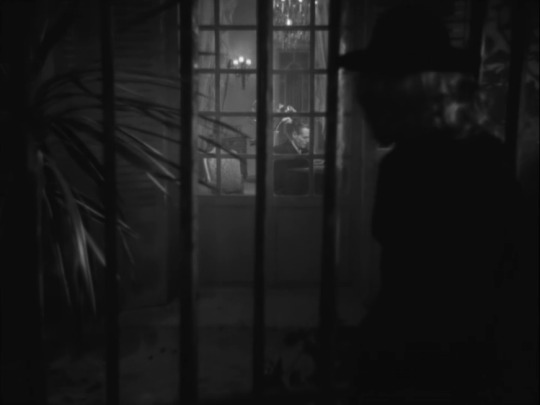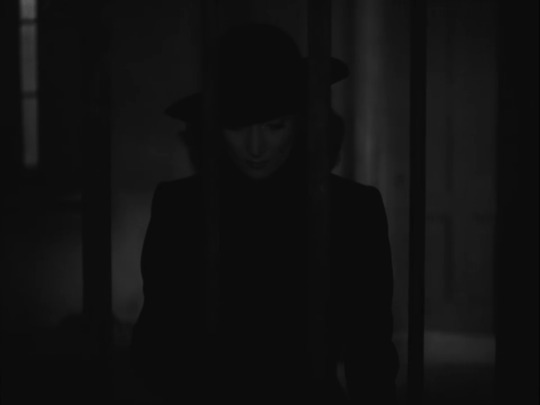#Poligny
Text

Château de Vaux in Poligny, Franche-Comté region of France
French vintage postcard
#old#postcard#de#vaux#postkaart#french#poligny#vintage#briefkaart#postal#region#ansichtskarte#ephemera#photography#photo#comt#franche#postkarte#tarjeta#france#château de vaux#chteau#historic#sepia#carte postale
3 notes
·
View notes
Photo

François Périer dans "Le Veau Gras" de Serge de Poligny (1939) - inspiré de la pièce éponyme de Bernard Zimmer (1924) - mars 2023.
2 notes
·
View notes
Text
Tourisme : Nos pépites à Haut Potentiel Émotionnel dans le Jura
Tourisme : Nos pépites à Haut Potentiel Émotionnel dans le Jura

View On WordPress
#barrage de Vouglans#Comté#culture#fromage#Jura#La Grande Saline#La Vache qui rit#Lamoura#Lons-le-Saunier#Maison du Comté#Moirans#Morez#Musée de la lunette#Musée des lapidaires#Musée des savoir-faire#Musées#Poligny#Ravilloles#Salins-les-Bains#Sortir#tourisme#Vouglans
1 note
·
View note
Text

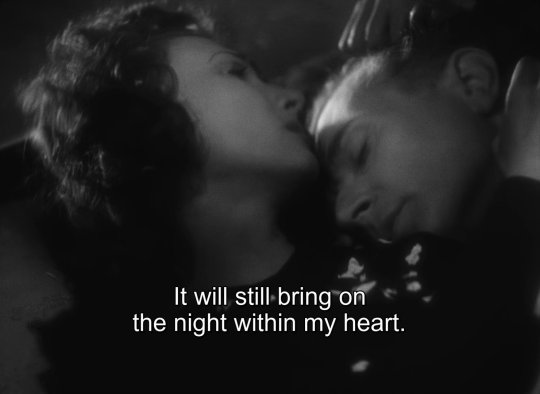
The Bride of Darkness ~ La Fiancée des ténèbres (Serge de Poligny, 1945)
13 notes
·
View notes
Text
You'll find other Phantom of the Opera's polls in my 'gothic lit' tag or my pinned post.
#polls#the phantom of the opera#le fantôme de l'opéra#gaston leroux#christine daae#raoul de chagny#erik the phantom#meg giry#madame giry#the persian#carlotta#m. debienne et m. poligny#m. moncharmin et m. richard
35 notes
·
View notes
Text
La Estrella de Valencia
La Estrella de Valencia
La jornada del día 3 de abril de 1880 el puerto de Barcelona no tuvo una gran actividad, unos ocho barcos llegaron y otros tres partieron. De los llegados destacaban el vapor Minerva procedente de Ruan que traía una importante carga de sílice y silicato de sosa; de Newcastle llegó el vapor Headquarters con más de 1.000 toneladas de carbón mineral; de Nueva Orleans la corbeta Humber llevaba a…
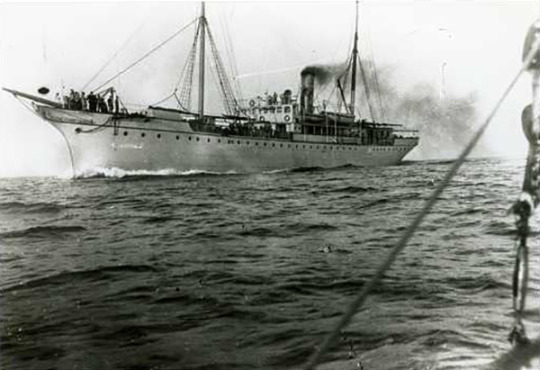
View On WordPress
#1880#Alfred Zeisler#Bellver#cine#Compañía Trasmediterránea#Der Stern von Valencia#documental#Empresa Marítima a Vapor#Fructuós Gelabert#Isleña Marítima#L&039;Etoile de Valencia#Palma de Mallorca#pelicula#Puerto de Barcelona#Serge de Poligny#vapor#vapor Bellver
1 note
·
View note
Text

"New management? And M. Debienne and M. Poligny didn't think to inform their most important staff member?! Outrageous! What bad form! BAD FORM I say! If only Erik had known! He'd have sent a jolly little welcome gift. Alas! I suppose I should find something to throw together. Awfully difficult at the last minute but one doesn't wish to be rude!"
265 notes
·
View notes
Text

Stage winner Matej Mohorič of Slovenia & Fred Wright of Great Britain and Bahrain Victorious during the 110th Tour de France 2023, Stage 19 a 172.8km stage from Moirans-en-Montagne to Poligny on July 21, 2023 in Poligny, France. (Photo by Tim de Waele/Getty Images)
#matej mohoric#fred wright#bahrain victorious#cycling#tour de france 2023#TDF2023#tour de france#le tour de france
97 notes
·
View notes
Text
Susan Kay's 'Phantom' Read: Part V (Erik, 1856-1881)
Before we start I feel that I need to talk about a perspective shift that I've had. More than half-way through the book now with the completion of this episode I've come to a realization.
Phantom is not what I thought it was. This epiphany has been slowly dawning but here we are.
My impression of Phantom, based on how I have seen it talked about in the Phandom (and certainly how the reviews on the back of the book present it) was that it was Leroux's story but with the blanks filled in and a few small liberties taken.
I had this impression because I was told that for quite a few years, Phantom was basically considered Canon and also because I have often seen Kayrik (or Kerik) and Lerik (or Leroux's Erik) conflated in discussions.
But as I'm reading I have finally realised that I don't think this is ever what Kay intended.
Don't get me wrong I hate most of the decisions she's made, but this book is a complete re-working of the source material with many elements of the book, some from the musical and some original folded in. For Erik's history she mainly follows the life-history detailed by Leroux, but in terms of Erik as a character, he more closely resembles Musical!Erik than anything (except that Kayrik's deformity affects his entire face, not just half). When we arrive at the Opera, she again adheres to Leroux's history. But once we catch up to the canon events, this time line is swiftly abandoned.
Nadir and Erik bump into each other and resume their friendship.
A few weeks later, Erik finds Joseph Buquet's body in his torture chamber.
A few weeks after that Erik hears the news of the Opera's change in management, and hears Christine sing for the first time.
In the source material, Buquet's body is discovered on the same night as Christine's initial triumph (so three months AFTER Erik began to teach her), the same night that the old managers, Debienne and Poligny, have their farewell celebrations and hand over management to Firmin Richard and Armand Moncharmin. Leroux describes Raoul rushing across the stage, "On which Christine Daae has just triumphed, and under which Joseph Buquet had just died." [This excluded from the original translation.
Why Kay chose to alter the progression of events I don't know, but that combined with a final nail in this coffin for me to realise that I had been approaching this book from entirely the wrong perspective. That final nail is the fact that Christine Daaé, in this book, is dark- haired and not blonde.
Kay does what most Phan-author's do: she cherrypicks her preferred elements from both book and musical (Erik general erudite comportment, his mis-matched eyes, Christine's dark hair) and combines them with her own headcanons to create an AU fic that, because of the reclusive nature of Fanfiction at the time and the fact that this work was published and widely circulated, became, for many fans not interested filling in the blanks themselves, erroneously synonymous with actual canon for a goodly number of years, despite its open contradictions to the source material.
Does that mean I like it any better? Haha fuck no. My irritation with Kay's choices persists. It's just that my ire for this book's influence is more accurately directed at the Phandom at large for making it something of a Golden Calf.
And like the Biblical Golden Calf I am here to pound it into dust and make everyone drink it.
So at this point I was going to complain that Kay never made mention of Erik being Christened "the trap-door lover" in Persia. There's even a CHAPTER of Leroux's novel called "The Masterstroke of the Trap-Door Lover". And this didn't come up even ONCE in Nadir's narrative. In fact the Persian and Leroux's narrator both talk about how Erik "rigged the palaces". Which is to say he made alterations to existing buildings and "turned the most honest construction in the world into a demonic house where one could not speak a word without being watched, or betrayed by an echo. How many family quarrels, how many bloody tragedies had the monster left in his wake with his trap doors?"
In Kay's narrative, Erik doesn't alter any existing palaces, he only constructs the Trick Box inspired palace described in Leroux's epilogue and his love of trap doors? Apparently it just isn't a thing.
Moving on
So of course we have to come back around to his mother. That was inevitable and I do actually appreciate it because we know Erik's furniture in the lair was his mother's.
The part where he views his mother's body is... eighhhhhh.
Erik describes the ravages of time in Madeleine's face and also the ravages of death. He talks about the irony that there's actually some resemblance between them now. And we get... this
And as I looked at her, I suddenly understood her revulsion at last--because now I shared it!
I felt no anger or grief as I looked down upon her . . . nothing except a disgust which enabled me to forgive any act of cruelty that she had ever shown me.
[...]
I did not kiss her, now that I had the opportunity.
I knew that she would not have wished it.
And I no longer felt any desire to do so.
I'm deeply confused as to what Kay is trying to convey here. Is Erik really saying that he doesn't want to kiss his mother because death has made her ugly? He goes on a lot about how death is gross and ugly and like... you just found out that your mom never re-married after you left. Never left the house she raised you in.
The misogyny REALLY steps up to the foreground here as well. He says of his mother's friend, Marie Perrault (the only person in this entire book with any rights imho)
This nervous, anxious, well-meaning lady had taught me to respect all members of the weaker sex.
Which, simply by calling them the "weaker sex"... you clearly don't? And after proclaiming is respect for ALL MEMBERS of the weaker sex, in the NEXT sentence he puts in a caveat about how he's never harmed an innocent woman, and also says something about the Khanom that really made me very, very queasy, and also reinforced my squicky suspicions about why Kay chose to make the cruel and capricious female figure in Persia an older woman (a domineering mother) rather than Leroux's "Little Sultana".
Very annoyed how Kay has graduated Erik's voice from "Automatic Aphrodisiac" to "Literally indistinguishable from Jedi Mind Tricks".
Erik regails us with how, using only his voice he is able to "reduce certain men to a trance-like state of obedience" (once exhibited on Nadir and his son Reza). When he meets Nadir again in Paris we are treated to this observation:
"Do you understand, Nadir? Keep away!"
His hand slid him it carriage door and he stood back with a trance-like obedience. He made no effort to prevent the brougham moving away, but although I knew my secret was safe for tonight, I felt no sense of complacency.
Once before he had broken free of my control, torn down the swaddling cocoon of sound with which I had bound him. Unlike Jules [Erik's lackey], he was not a natural subject; his will was too strong, his sense of identity and purpose too well developed.
Whenever he chose to fight my voice, I knew I would be unable to hold him.
That's a Jedi Mind trick. I'm sorry it is.
This section is actually quite enjoyable where the building of the opera house is concerned, but it takes a downturn, both in terms of the story and just the quality of the writing.
There are two instances of redundancy.
His death excited little excitement.
"My old interest in divination had never left me, and from time to time I still consulted the tarot cards in desultory fashion. It had been a long while since they had revealed anything significant, but now of late, each time I picked a card at random I seemed to turn up Death...
And this latter example leads me to something that really made me want to throw the book.
Since Nadir's narrative I have looked askance at something that has come up repeatedly: Susan Kay goes to GREAT LENGTHS to ensure that the readers know that Nadir I 100% straight. NO HOMO HERE, DEAR READER. ABSOLUTELY NOT. She shoehorns in a dead wife that Nadir never got over losing, and went into unnecessary detail about how when Nadir feels "the itch of manhood" (🤮🤮🤮🤮🤮) he avails himself of a prostitute or an odalisque. It comes up SEVERAL times. And when Nadir pops back up in Paris she makes sure to tell us that he has a mistress that he sees regularly. All of this to bring us to THIS infuriating line:
And so even as I walked with Nadir, talked with him, rejoiced in the warmth of communicating directly once more with a human soul, there was a part of me that looked at him with suspicion and wondered what part fate had assigned him in this new, unrehearsed opera.
Not the Lover, that was for certain. I'd seen enough girls leaving his apartments in Persia to be reassured that all of his instincts were purely heterosexual."
I'm not generally into gay readings of PotO. I don't ship Erik with either Raoul or with The Persian. But I will say that if there is an argument to be made for anyone in this book being anything less than 100% heterosexual, it's The Persian. Leroux makes no mention of him having a wife or anything of the sort. Tie that in with the determined responsibility and complex bond he seems to hold with Erik and a case can be made for our dear Daroga feeling something rather more than just sympathy for Erik. (I don't personally subscribe to this, but the case can certainly be made--I'm more of a DaRaoul girl tbh. I think that's an untapped gold mine).
But not here. Kay bends so far backwards as to have Erik say outright "Nadir is defo straight", while (even more bafflingly) implying that, perhaps, Erik is not. WHY, SUSAN. WHY?
Christine’s introduction is the single most "reads like Fanfiction (derogatory)" thing I've read in this book so far, but I find it very interesting how, when Christine sings for the first time Erik says that she "possesses a near perfect instrument". He says her technique is faultless, and that there's no weakness in either register. My first problem is that Leroux's Erik only ever calls Carlotta's voice an "instrument", because that's all it is to Carlotta. My second is that, according to Christine, her lower register was muffled and her upper register was shrill and her middle register wanted clarity. Maybe that's just Christine being too critical of herself, but I doubt that she had "flawless technique" when Erik began teaching her. Incredible latent talent for sure, but I do believe that she needed help with technique as well as motivation to reignite her passion.
Lastly we have Erik's description of when he first sings to Christine. His narrative regarding his motivation is actually very similar to my own:
She wanted an Angel of Music--an angel who would make her believe in herself at last.
[...] There was no reason in the world why I could not be the Angel of Music to Christine. I couldn't hope to be a man to her, I couldn't ever be a real, breathing, living man waking at her side and reaching out for her. . . .
But I could be her angel.
Is his motive here altruistic? No. But the sentiment is sweet enough. The notion of inspiring Christine's self-confidence is present.
Pity then that he takes a sharp left turn in the very next paragraph and utterly compromises any positivity in his intent.
I could not steal her body--but I could steal her voice and weld it irretrievably with mine; I could take it, and mold it, and make it mine forever...
Softly at first, infinitely softly I began to sing an old, heathen, Romany song. The Hollowed bricks carried the haunting melody relentlessly to her, permitted my voice to envelop her gently like a poisonous mist, seeping inexorably into her mind and staining her soul with darkness.
Well, well.
Once more unto the breach I go...
Masterpost
59 notes
·
View notes
Photo


"Le Veau Gras" de Serge de Poligny (1939) - inspiré de la pièce éponyme de Bernard Zimmer (1924) - avec François Périer, Elvire Popesco, Armand Bernard, André Lefaur, Gabrielle Fontan, Raymond Cordy, Dorville, Robert Le Vigan, Marcelle Praince, Yvette Andréyor, Micheline Buire, Carine Nelson et la jeune Solange de Turenne, mars 2023.
#films#Poligny#Zimmer#Perier#Popesco#Bernard#Lefaur#Fontan#Cordy#Dorville#LeVigan#Praince#Andreyor#Buire#Nelson#Turenne
0 notes
Text
Merry Christmas and Happy Holidays to all fans of the enigmatic world of "The Phantom of the Opera"
We are excited to present the first chapter of "Zariya Hollow - A Horror Anthology: Episode 13 - "The Ghost in The Opera House".
This project, a labor of love spanning nine years, has been made possible in collaboration with phantomstheater.weebly.com. We extend our heartfelt thanks to Phantomstheater for providing access to their translation of the original Le Gaulois newspaper publication of Gaston Leroux's "Le Fantôme de l'Opéra", along with the comprehensive appendix. Discover more and stay updated at phantomstheater.weebly.com/Zariya-Hollow.
Zariya Hollow: Season 1, Episode 13 - "The Ghost In The Opera House" (Chapter 1)
In the gripping season finale opener, "The Ghost In The Opera House," we step into the mysterious corridors of Paris's famed Opera House, led by the enigmatic voice of Gaston Leroux. His narration not only brings the grand architecture to life but also whispers of the secrets and ghostly enigmas hidden within its walls.
This episode is a defining moment in the Opera House's chronicles, capturing the significant transfer of leadership from the old directors, Messieurs Debienne and Poligny, to the new custodians, Armand Moncharmin and Firmin Richard. The handover of the small master keys isn't merely a formal procedure; it signifies the dawn of a new era, riddled with unexpected challenges and eerie tales of a phantom lurking in the shadows.
As we navigate through Leroux's vividly painted scenes, we explore the Opera House's majestic underbelly, where the new directors grapple with the daunting rumors of a spectral inhabitant. Parallel to this, in the serene town of Perros-Guirec, another story starts to unfurl, intricately linking to the opera's own enigmatic saga.
Leroux's masterful storytelling skillfully blends reality with legend, weaving a narrative that captivates and haunts in equal measure. "The Ghost In The Opera House" is more than a tale of unspoken love and ghostly presence; it's an expedition into a realm where every hidden corner and echoing note tells its own story. As the tale progresses, Leroux sets the stage for a finale that is set to be as unforgettable as the legend of the Paris Opera House itself.
Tune in to this mesmerizing journey at anchor.fm/zariyahollow/episodes/Zariya-Hollow-S1Ep13--The-Ghost-In-The-Opera-House-Chapter-1-e2dlke1.
#podcast#ZariyaHollow#TheGhostInTheOperaHouse#PhantomOfTheOpera#GastonLeroux#HorrorAnthology#ParisOperaHouse#MysteryAndSuspense#Adaptation#FrenchLiterature#DramaSeries#SeasonFinale#HistoricalFiction#GothicRomance#AudioDrama#FanCreation#ClassicLiterature#SpookyStories#CulturalHeritage#CreativeWriting#Storytelling#the phantom of the opera#spotify#alexielderavenswood#themaskedlion#radio drama#POTO#le fantome de l'opera#christine daae#raoul de chagny
13 notes
·
View notes
Text

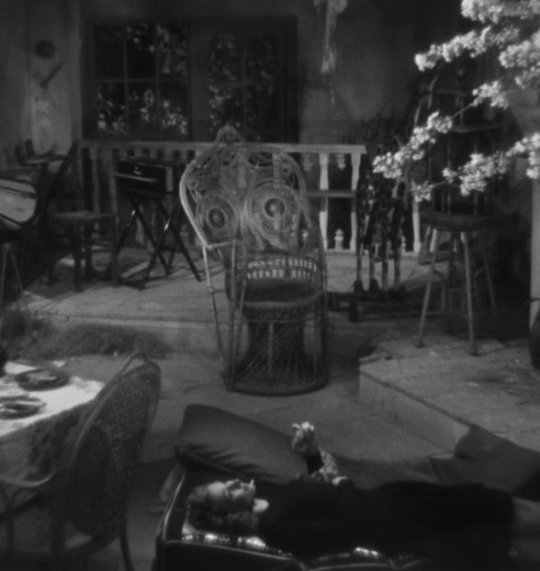
The Bride of Darkness ~ La Fiancée des ténèbres (Serge de Poligny, 1945)
1 note
·
View note
Photo

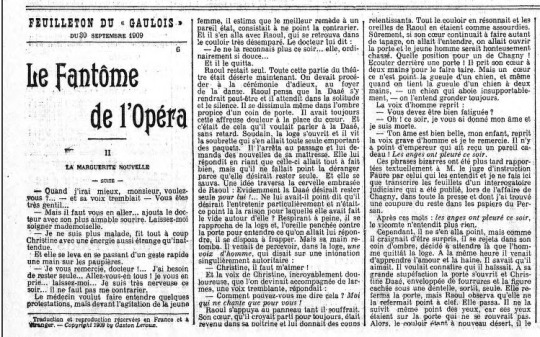

Welcome to the 6th installment of 15 Weeks of Phantom, where I post all 68 sections of Le Fantôme de l’Opéra, as they were first printed in Le Gaulois newspaper 114 yeas ago.
In today’s installment, we have Part III of Chapter 2: “La Marguerite Nouvelle” (“The New Marguerite”), as well as Part I of Chapter 3: “Où pour la première fois, MM. Debienne et Poligny donnent, en secret, aux nouveaux directeurs de l’Opéra, MM. Armand Monchardin et Firmin Richard, la véritable et mystérieuse raison de leur départ de l’Académie nationale de musique” (“Where for the First Time, MM. Debienne and Poligny Secretly Give the New Managers of the Opera, MM. Armand Moncharmin and Firmin Richard, the True and Mysterious Reason for Their Departure from the National Academy of Music”).
This section was first printed on Thursday, 30 September 1909.
For anyone following along in David Coward’s translation (the link is to the Kindle edition on Amazon US), the text starts at Christine's line, “Perhaps when I'm feeling a little better, if that's all right with you” in Chapter 2 and goes to, “In choosing the ideal valedictory programme they had been advised by everybody who was someone in the world of society and the arts who had now foregathered in the foyer of the corps de ballet” in Chapter 3.
In this section, there are some significant differences between the standard 1st edition text and the Gaulois text. This includes several paragraphs' worth of description of why the old managers decided to leave the Opéra. There are some other minor but important passages in the Gaulois text that were omitted from the 1st edition, which paint a fuller picture of the events in question:
1) In the Gaulois text, Christine has an extra line in Chapter 2: « Je vous remercie, docteur !… J’ai besoin de rester seule… Allez-vous-en tous ! je vous en prie… laissez-moi… Je suis très nerveuse ce soir… il ne faut pas me contrarier.»
Translation:
"I thank you, doctor!... I need to be alone... All of you go! I beg you ... leave me... I am quite on edge this evening ... you mustn’t argue with me."
2) In this Gaulois text, the following paragraph was added after Erik's line, “The angels wept tonight.” This added paragraph contributes to Leroux's pseudo-journalistic style, and also lets us know how Leroux's narrator found out about what Erik said to Christine after the gala — the conversation was part of what Raoul reported to Faure, the examining magistrate:
— Ton âme est bien belle, mon enfant, reprit la voix grave d'homme et je te remercie. Il n'y a point d'empereur qui ait reçu un pareil cadeau! Les anges ont pleuré ce soir. »
Ces phrases bizarres ont été plus tard rapportées textuellement à M. le juge d'instruction Faure par celui qui les entendit et je ne fais ici que transcrire les feuillets d'un interrogatoire judiciaire qui a été publié, lors de l'affaire de Chagny, dans toute la presse et dont j'ai trouvé une coupure du reste dans les papiers du Persan.
Translation:
“Your soul is very beautiful, my child,” replied the man’s deep voice, “and I thank you. No emperor has ever received such a gift! The angels wept tonight.”
This strange conversation was later related verbatim to the examining magistrate, M. Faure, by he who heard it, and here I have only transcribed the pages of a judicial examination which was published in all the newspapers at the time of the Chagny case, and of which moreover I found a clipping amongst the Persian's documents.
3) The Gaulois text contains the paragraph highlighted in red above, which was omitted from the 1st edition. This paragraph describes some of the failures of the previous management run by Debienne and Poligny, which Erik learned about and used to blackmail M. Poligny into giving him 20,000 francs per month. This passage emphasizes that Debienne and Poligny had decided to quit their jobs as managers not just because Erik had made their lives untenable, but also because there had been a public scandal. Erik happened to know more about this scandal than what was published in the papers, and so rather than have him get them into even more trouble, they gave into his blackmail, and then soon after decided to leave the Opéra altogether. I have provided a rough translation of this paragraph below:
Paris had not forgotten what these two men had done for it in the difficult years where it was not enough to give toil and life to a work for it to succeed, but where it was above all necessary, at a time which still suffered from all the hardships of the war, to make the greatest of sacrifices, that of money. On this occasion, M. Debienne showed himself to be so generous with his own fortune, and M. Poligny so lavish with that of other people, that for several years the public could be deceived about the prosperity of that noble enterprise. Soon, unpleasant murmurs reached the awareness of an administration which, for having been as extravagant as artistic, felt it difficult to make ends meet, as we still say in our vulgar speech. In high quarters, people were astonished; the government deigned to become concerned and the Government Commissioner had the audacity and imprudence — encouraged as he was by the Under Secretary of State for Fine Arts — to allude to a situation close to the Managers which was in short in no way desperate, thus regrettable words were exchanged, which made relations difficult between the offices of the National Academy and the Ministry. Each side made life miserable for the other, the "ladies" began to meddle in the affair, and life became intolerable. And above all, because of the substantial commitments made at the beginning of the administration, money became tight. The daily political newspapers became hostile and, making unflattering comparisons, never missed an opportunity to pine for the renowned previous management. In spite of the comforts which were otherwise lavished upon them, MM. Debienne and Poligny were quite disheartened when the flop of the ballet, Endymion, for which they had nevertheless made the greatest of sacrifices, looked like it would force them to beg for mercy. In fact, three months later, they gave up their privileges and conceded their place to two powerful, magnanimous figures, MM. Armand Moncharmin and Firmin Richard.
4) Minor differences in punctuation.
Click here to see the entire edition of Le Gaulois from 30 September, 1909. This link brings you to page 3 of the newspaper — Le Fantôme is at the bottom of the page in the feuilleton section. Click on the big green arrow buttons towards the top of the webpage to turn the pages of the newspaper, and click on the magnifying glass icon at the top left to zoom.
#phantom of the opera#gaston leroux#le fantôme de l’opéra#le gaulois#phantom translation#15 weeks of phantom
55 notes
·
View notes

